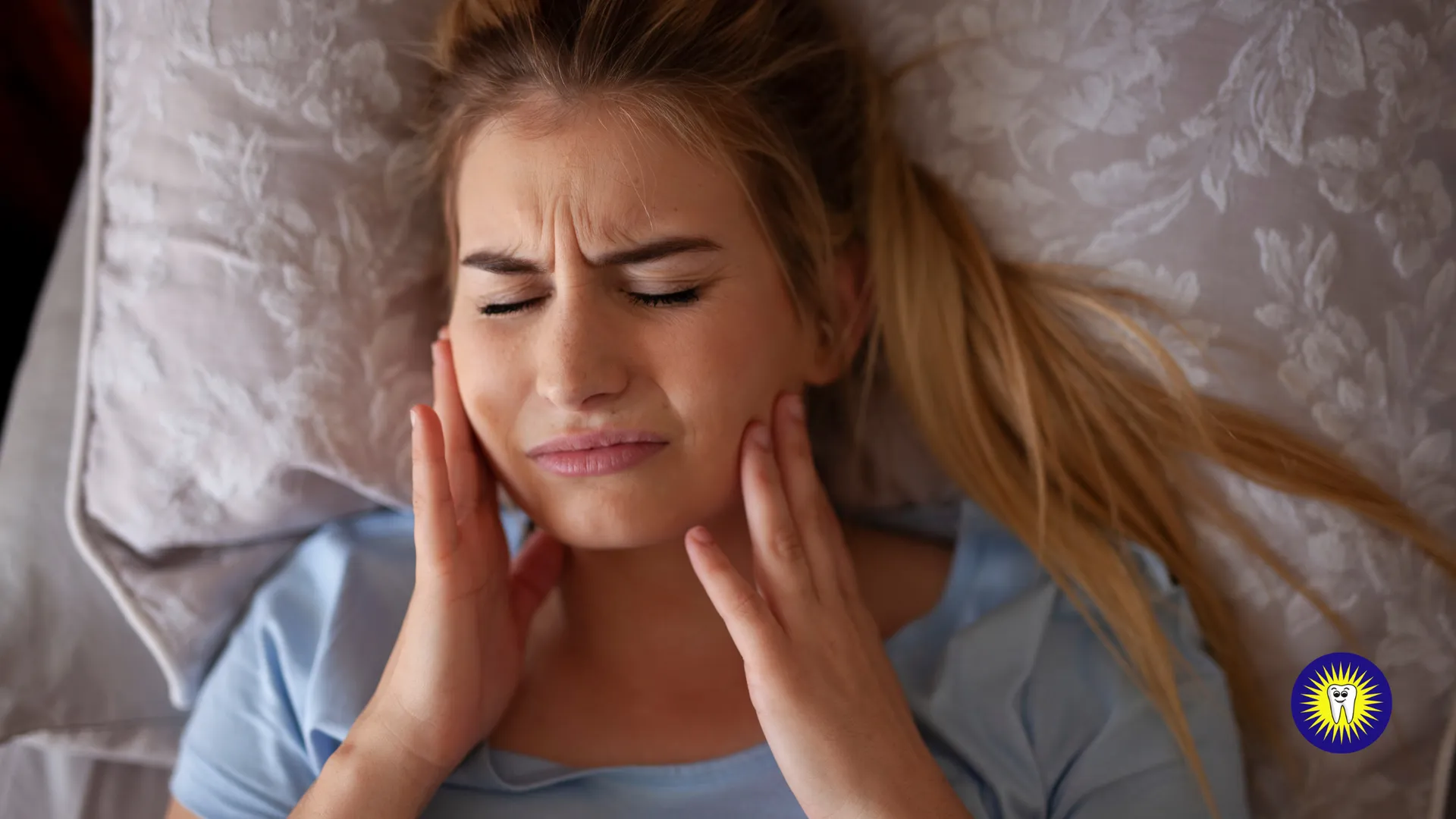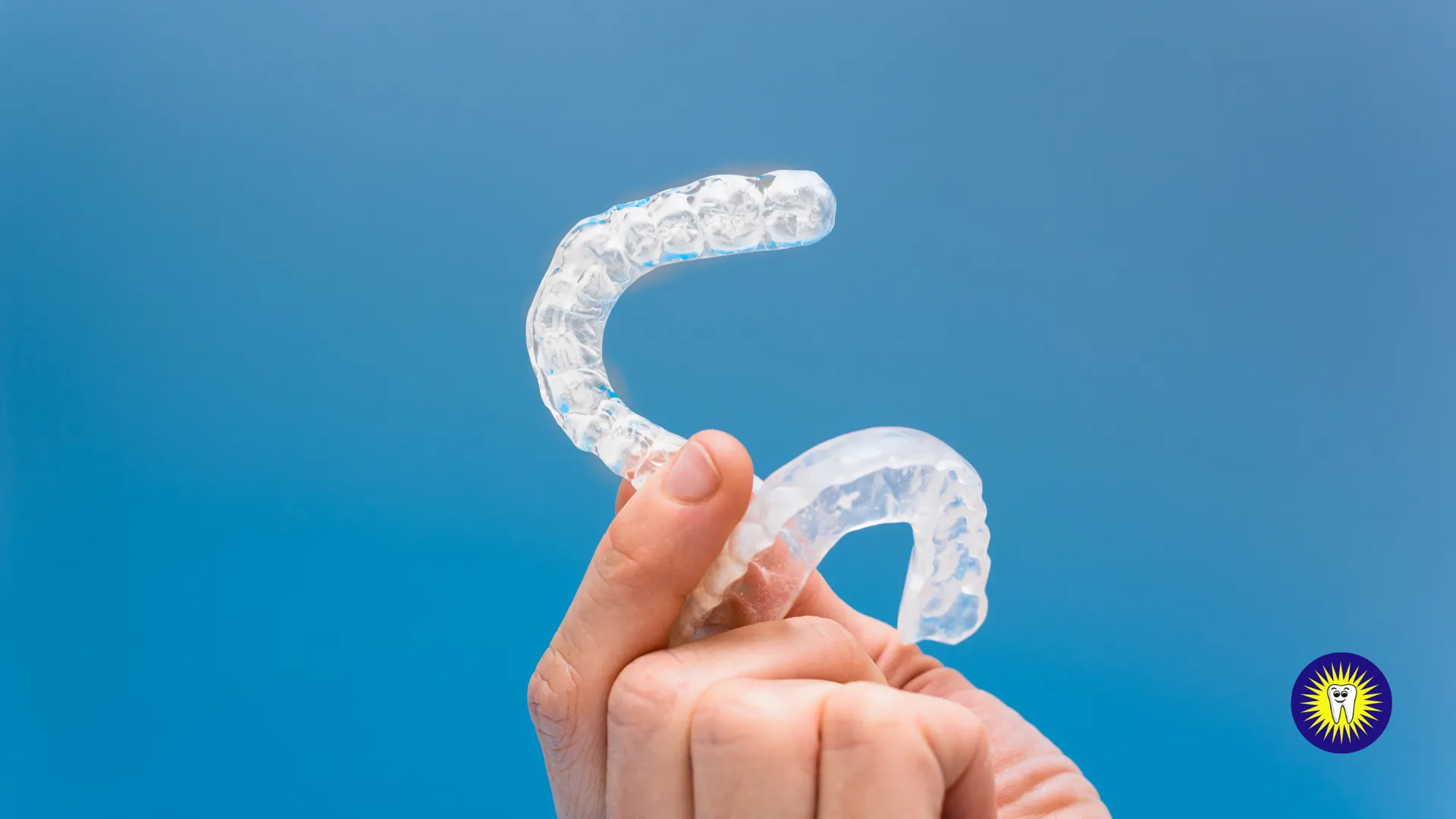Many dental patients will occasionally grind their teeth during sleeping hours in what is medically referred to as bruxism. Although it generally does not tend to cause any harm, frequent grinding can result in your teeth being negatively impacted and create additional oral health concerns.
Stress and anxiety are both contributing factors that cause teeth grinding, but an abnormal bite or a missing or crooked tooth is more often responsible for bruxism. A sleep disorder, such as sleep apnea, can also be the root cause.
At Liberty Square Dental Group, our team has shared extensive information relating to bruxism, including symptoms, means of diagnosis, and effective solutions.
Symptoms of Bruxism in Adults (Grinding Teeth)
Not all patients will experience severe effects from sleep bruxism. Your symptoms and long-term ramifications are determined by the extent of the grinding, the alignment of your teeth, your diet, and whether you have other conditions that can impact the teeth.
However, it is vital to know the common symptoms, which are:
- Jaw, neck, or face discomfort
- Chronic headaches
- Sensitive teeth
- Broken, chipped, or cracked teeth
- Waking up and a sense of restlessness
- Neck and shoulder pain
- Teeth grinding or clenching
- Teeth that are noticeably fractured, flattened, chipped, or loose
- Worn tooth enamel that exposes deeper layers of your tooth
- Tired or tight jaw muscles
- Discomfort that could resemble an earache
- Chewing marks on the inside of your cheek
How Is Night Time Teeth Grinding Diagnosed?

During a routine dental exam at our Scarborough or Toronto dental clinic, our dentists can check for any signs of bruxism. If common symptoms are evident, then one of our dentists will thoroughly look for potential alterations in your teeth or mouth throughout the next few visits, noting any progression and determining whether or not you require treatment. Your Toronto dentist will aim to identify the cause of the bruxism by asking questions about your general oral health, medications, daily habits, and sleeping patterns.
Common Factors That Can Lead to Bruxism (Grinding Your Teeth)

Stress
Anxiety, anger, frustration, and stress can all influence teeth grinding.
Age
Teeth grinding is a normal habit among young children and it generally stops as you reach adulthood.
Personality Type
If you have a personality that is aggressive, competitive, or super-active, your risk of bruxism can be greater.
Inconsistent Sleeping Patterns
Many instances of teeth grinding seem to be connected with changing sleeping patterns or microarousals from sleep. Increases in brain and cardiovascular activity often precede teeth grinding, which could explain the associations that have been discovered between sleep bruxism and obstructive sleep apnea (OSA).
Medications
Tobacco, caffeinated beverages, alcohol, and recreational drugs can increase your risk of bruxism. And teeth grinding can also be an uncommon side effect stemming from psychiatric medications, like certain antidepressants.
Genetic Conditions
Sleep bruxism is often seen in families, so your case of teeth grinding can come from a family history of it.
Other Disorders
Certain mental health and medical disorders can be linked to teeth grinding, including Parkinson’s disease, epilepsy, dementia, gastroesophageal reflux disorder (GERD), night horrors, sleep-related disorders (sleep apnea), and attention-deficit disorder (ADHD).
Potential Long-Term Consequences of Grinding Your Teeth at Night

- Extensive harm to the teeth. Your teeth can become uncomfortable, eroded, and loose.
- Dental crowns, fillings, and implants can be significantly affected.
This can increase the risk of experiencing issues with the joint that connects the lower jaw to the skull, also known as the temporomandibular joint (TMJ). Concerns relating to this joint can produce chewing difficulties, chronic jaw pain, popping or clicking sounds, locking of the jaw, and various other complications.
What is the Solution to Night Time Teeth Grinding?

A mouth guard, customized within the dental practice, will be arranged by one of our dentists to protect your teeth from grinding as you sleep. For patients who are grinding their teeth because of stress, ask your doctor or dentist about some of the viable options that can reduce your stress (stress counseling, an exercise program, physical therapy sessions, or receiving a prescription for muscle relaxants).
Book Your Next Dental Appointment
Contact Liberty Square Dental Group to learn more about our Toronto dental office or Scarborough dental clinic. We look forward to seeing you soon!

